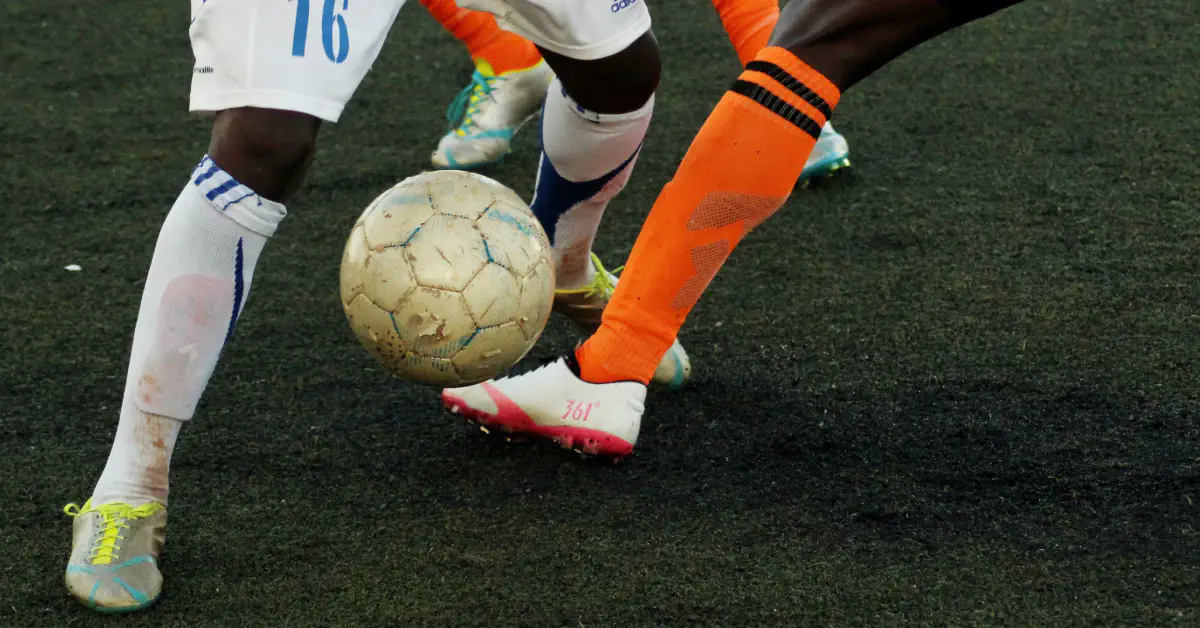Sports Apps: Turn Your Phone Into a Personal Coach

Sports enthusiasts, athletes, and coaches alike have all come to rely on sports apps for a variety of reasons. Whether it’s tracking fitness goals, staying up-to-date on live game scores, or accessing training regimens, sports apps have revolutionized the way we experience and engage with sports. As a result, the sports apps market has been booming, and is projected to be worth a whopping $26 billion by 2025! To stay ahead of the game, businesses and organizations are turning to custom sports app development to create unique and personalized solutions that cater to their specific needs. So, in this article, we’ll explore the exciting benefits of custom sports app development, and how it can help companies stand out in the ever-growing sports apps market.
Sports apps came at the right time. The statistics indicate that people spend increasingly more time on mobile apps. Moreover, health, fitness and sport apps are in the forefront of this tendency, e.g. music apps stand at 79%, health and fitness apps at 51%, social networking 49%, travel 28%, sports 16%, games 15%, and news at 14%. It’s no wonder that the demand for cool sports apps is growing from year to year.
We can divide all sport apps into two types: the personal ones, which assist with individual training, and social ones, which help to manage amateur sport teams, find places for trainings, sport events or teammates. Let’s look closely.
Personal apps
Activity apps are very common things now. Some of them are pre-installed in the newest versions of operating systems. For example, Android has “S-Health” app, iOS got “Activity” app. Activity tracking apps record how much water and coffee you drink, what you eat and how many calories you consume during the day. They also can monitor your step count or other physical exercises using gyroscope and wearable devices. Wearables can do so much: they manage your health indicators such as heart rate or blood pressure, track distance and GPS location, they have reminders about workouts and smart alarm clock. Thanks to special algorithms that recognize different hand movements, some apps can track even wheelchair user’s activity.
Activity trackers use a lot of the gadget’s hardware. They need access to gyroscope, accelerometer, bluetooth and even microphone. These apps work with big amount of data and often require cloud storages to keep statistics. Push notifications is also their feature: in-app notifications will remind users to exercise, to drink water, to meditate and so on.
Diary apps is another must-have tool for individual sports. They are particularly helpful for bodybuilders and athletes who work out in gym. Wearables still can’t track the number of barbell lifts or hack squats, so users have to keep record of their results by themselves. Such sport app also comes in handy for creating a workout plan, choosing weights, exercises and their duration. Diaries are technically simple to implement: they work as regular organizers or calendar apps with some additional features like user notes.
Personal fitness apps development have big growth potential. Tracking devices can’t count the number of reps you do in the gym and there’s not many apps for swimmers, because wearables are not water resistant. However, there are so many other cutting edge technologies that can be utilized to improve a sports app! Neural networks are able to identify the speed of punch, kick, hit or throw using the camera of the smart device. Also artificial intelligence can enhance coaching apps (we’ll talk about them later). By scanning a photo or a video AI can analyze user’s behavior and find out all the mistakes or imperfections. Don’t forget about virtual reality. It can basically drive video lessons to incredible level. Imagine that you may polish your sports skills by watching 3D footage, have the ability to pause video anytime and have a detailed look from any angle that suits you. Sounds pretty cool, right? I believe it’s just a matter of time when things like this appear at the market.
Social apps
Booking apps is one more new trend in the world of sport. Thanks to popularity of virtual assistants like Siri or Cortana and their ability to book almost everything online, booking apps are in high demand today. Through these apps, users can book a stadium, tennis court, race track, bicycle and whatever else they need for their sports training. Booking apps are not difficult to develop. All they need are integrated maps, payment systems and user notifications to let users know when their favourite swimming pool is available.
Coaching apps also became popular recently. There are tons of free video lessons on YouTube and coaching or personal trainer apps work in a pretty similar way with one major exception: the student uploads video of himself performing an exercise or a move to the app, the coach analyzes it and creates a personalized video lesson.
Applications like this use a simple server where all videos are stored. They also work with camera, allowing users to shoot quick photos or videos and upload them instantly. By the way, we have experience in developing a personal trainer app for golf players. If you are interested in one, let us know.
Team management apps are somewhat similar to the previous types. A sports team app allows users to find teammates, watch their activity, set up training schedule, choose venues and events to jump in. Such apps also keep story of all games and memorable moments of your team. A nice tool to raise your team spirit! We’ve recently developed a new sports team management app, check it out in our portfolio. It’s awesome, really.
All apps with social features look like small pieces of a big pie. I guess, you already know what I’m aimimg at: social networks for sports. The idea of creating a sports connection app is not new and there are some existing applications of that kind. However, social networks never get old. You can experiment with the design, features or something else - just make sure you do it better than your predecessors. A sports network app can put together booking and coaching apps, provide interactive map with sport events, shops and places for training and so on.
Bottom line
That’s it for sport applications. As you can see, they continue to get bigger and stronger, just like their users. Wearable devices became tightly associated with sport and they continue to evolve in this direction. Sooner or later they will be able to track all user’s activities, including swimming and barbell exercises. Integration of new technologies such as neural networks and virtual reality will also introduce huge improvements and we just can’t wait for them!
If you have a great idea and look for sports app developers to bring it to life, feel free to drop us a message. We would be happy to help you out!
Don't want to miss anything?
Subscribe and get stories like these right into your inbox.
Keep reading

How to Develop a Fantasy Golf App and Wow the Market
How to build a cool fantasy golf app? And how to make sure that it will rock the market and melt the hearts of users? Read our article to find useful recommendations.

How to Create Powerful Sport Team Management Software
With the digitalization of the sports industry, the demand for sports team management websites is growing. Read our insights on how to build such software.

What is a Chatbot and How to Use It for Business Growth
Artificial intelligence is advancing rapidly, and chatbots are becoming a key part of this progress. Messaging apps are driving a growing demand for virtual chatbots.
Contact us
Let's explore how our expertise can help you achieve your goals! Drop us a line, and we'll get back to you shortly.